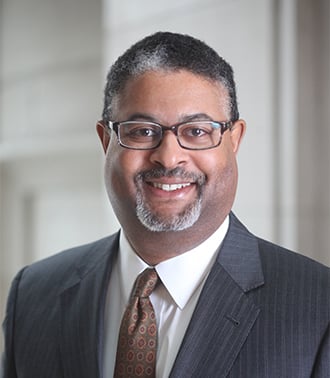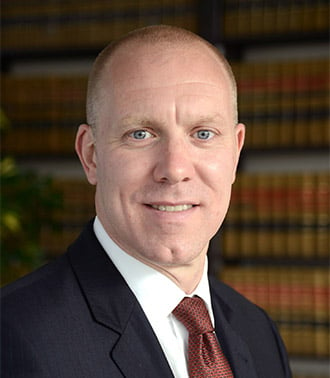Department of Justice Sets Up Procurement Collusion Strike Force
On November 5, 2019, the Department of Justice (DOJ) announced the formation of the new Procurement Collusion Strike Force (PCSF) to detect, investigate, prosecute, and deter antitrust crimes such as bid-rigging and related fraudulent schemes in the government procurement, grant and program funding areas.1 Assistant Attorney General Makan Delrahim explained at a press conference in Washington, DC, that the PCSF will represent an interagency partnership among the DOJ's Antitrust Division, 13 US Attorneys' Offices, FBI investigators, and four federal Offices of Inspector General. In establishing the PCSF, federal authorities are signaling an effort to deter and prosecute procurement collusion.
Background
A week before the announcement, on October 25, 2019, the Deputy Assistant Attorney General for Criminal Enforcement at the Antitrust Division, Richard A. Powers spoke at the American Bar Association Public Contract Law Section's 2019 Procurement Symposium in San Diego. In his remarks, the Deputy Assistant Attorney General emphasized the Antitrust Division's important mandate to protect from anti-competitive conduct not only American consumers, but also the government itself. Powers stated that the Antitrust Division seeks to safeguard taxpayer money by deterring and prosecuting bid-rigging. Powers included in his remarks that over one-third of the Antitrust Division's current open investigations relate to public procurement or other victimization of the government.2
Objectives and planned activities
The DOJ announced that the PCSF will represent a multi-office collaboration in which partnered prosecutors and investigators will jointly investigate and prosecute potential criminal antitrust violations in the procurement area. The PCSF will begin its task focus with the announced 13 partner US Attorneys' Office districts. The DOJ Antitrust Division is designating PCSF liaisons to the 13 partner districts, while each of the districts is designating an Assistant US Attorney to serve as a PCSF liaison.
In addition to prosecution, PCSF seeks to train and educate federal, state and local government procurement officials on how to identify warning signs of collusion. On the "seller side," PCSF will train and educate government contractors, their trade associations and public contract lawyers about criminal antitrust law. The PCSF will also work to improve data analytics programs to better analyze government procurement data and identify potential red flags of anti-competitive conduct.
The DOJ also launched a PCSF website for government procurement officials, companies and the interested public to access training programs, read about federal antitrust laws and report suspect criminal activity in the procurement arena.
Implications
The DOJ has recently focused on combating alleged anti-competitive conduct harming the government. At the PCSF announcement, Assistant Attorney General Delrahim mentioned the Antitrust Division's history of prosecuting criminal antitrust conspiracies that victimize government contracts. In November 2018 and March 2019, five South Korean petroleum companies agreed to plead guilty to their involvement in a decade-long bid-rigging conspiracy targeting fuel supply contracts for US military bases in South Korea.3 The DOJ announced that, in connection with its Korean fuel services investigation, those companies have agreed to pay $156 million in criminal fines and more than $205 million in civil settlements. In March 2019, the DOJ also indicted seven individual defendants, including associates, managers, and executives of the companies, for conspiring to rig bids and defraud the government; one executive was also charged with obstruction of justice.
In another investigation, the DOJ partnered with the General Services Administration (GSA) Office of Inspector General to indict, in April and September 2019 respectively, two individuals for rigging bids submitted to the GSA.4 Both individuals have agreed to plead guilty and are cooperating in the government's ongoing investigation.
These recent investigative forays into government procurement matters, and the announcement of this new task force may portend more criminal antitrust investigations in this space. For government contractors, these developments require reviewing and examining their internal policies and procedures with respect to several aspects of government procurement. For example, contractors who sell directly, or use resellers and distributors to sell goods and services, on GSA Schedule contracts need to be diligent about not only their own pricing, but also any possible collusive behavior being conducted by its suppliers, resellers, or distributors. Government contractors who engage in teaming agreements and joint ventures may also receive added scrutiny regarding the robustness of anticompetitive protections established in those relationships. Although competitive bidding is highly regulated and formalized in the government procurement sphere, market allocation also remains a possible avenue for collusive activity among contractors. And any time the government chooses to investigate a government contractor, the False Claims Act and Section 4A of the Clayton Act, which empower the United States to obtain treble damages for anticompetitive conduct when the government is itself the victim,5 emerge as a significant risk to the contractor.
Partners and participating agencies
The DOJ announced that the PCSF's investigative partners will include 13 US Attorney partners,6 the Federal Bureau of Investigation, the Department of Defense Office of Inspector General, the General Services Administration Office of Inspector General, the DOJ Office of the Inspector General, and the US Postal Service Office of Inspector General.
© Arnold & Porter Kaye Scholer LLP 2019 All Rights Reserved. This Advisory is intended to be a general summary of the law and does not constitute legal advice. You should consult with counsel to determine applicable legal requirements in a specific fact situation.
-
Assistant Attorney General Makan Delrahim, Department of Justice, Remarks at the Procurement Collusion Strike Force Press Conference (Nov. 5, 2019).
-
Deputy Assistant Attorney General Richard A. Powers, Department of Justice, Remarks at the American Bar Association Public Contract Law Section's 2019 Procurement Symposium (Oct. 25, 2019).
-
Press Release, Department of Justice, More Charges Announced in Ongoing Investigation into Bid Rigging and Fraud Targeting Defense Department Fuel Supply Contracts for U.S. Military Bases in South Korea (Mar. 20, 2019); Press Release, Department of Justice, Three South Korean Companies Agree to Plead Guilty and to Enter into Civil Settlements for Rigging Bids on United States Department of Defense Fuel Supply Contracts (Nov. 14, 2018).
-
Press Release, Department of Justice, Online Bidder Pleads Guilty to Antitrust Charge for Rigging Bids at Government Auctions (Sept. 24, 2019).
-
False Claims Act, 31 U.S.C. § 3729 (2017); Clayton Act, 15 U.S.C. § 15(a) (2018).
-
Nicole T. Hanna, Central District of California; McGregor Scott, Eastern District of California; Jason R. Dunn, District of Colorado; Jessie K. Liu, District of Columbia; Ariana Fajardo Orshan, Southern District of Florida; Byung J. Pak, Northern District of Georgia; John R. Lausch Jr., Northern District of Illinois; Matthew Schneider, Eastern District of Michigan; Geoffrey S. Berman, Southern District of New York; David M. DeVillers, Southern District of Ohio; William M. McSwain, Eastern District of Pennsylvania; Erin Nealy Cox, Northern District of Texas; G. Zachary Terwilliger, Eastern District of Virginia.





